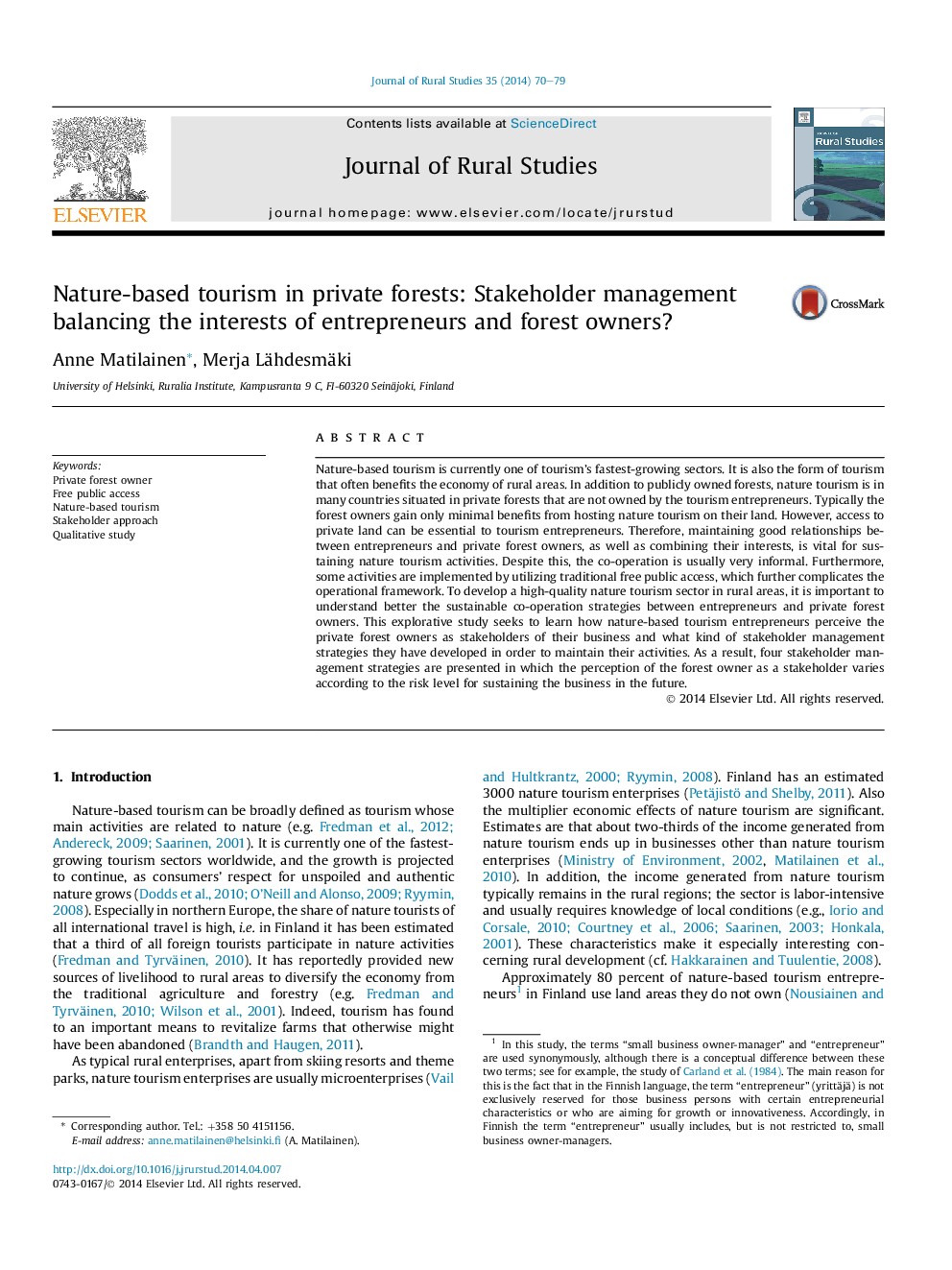| Article ID | Journal | Published Year | Pages | File Type |
|---|---|---|---|---|
| 92486 | Journal of Rural Studies | 2014 | 10 Pages |
•Private forest owners and tourism sector are not in a typical business relationship.•4 different types of stakeholder strategies were found to manage the co-operation.•Traditional use of nature as common resource pool affects to stakeholder management.•Social pressure was used as a stakeholder management tool in rural context.•Especially challenging is to take into account the psychological ownership aspects.
Nature-based tourism is currently one of tourism's fastest-growing sectors. It is also the form of tourism that often benefits the economy of rural areas. In addition to publicly owned forests, nature tourism is in many countries situated in private forests that are not owned by the tourism entrepreneurs. Typically the forest owners gain only minimal benefits from hosting nature tourism on their land. However, access to private land can be essential to tourism entrepreneurs. Therefore, maintaining good relationships between entrepreneurs and private forest owners, as well as combining their interests, is vital for sustaining nature tourism activities. Despite this, the co-operation is usually very informal. Furthermore, some activities are implemented by utilizing traditional free public access, which further complicates the operational framework. To develop a high-quality nature tourism sector in rural areas, it is important to understand better the sustainable co-operation strategies between entrepreneurs and private forest owners. This explorative study seeks to learn how nature-based tourism entrepreneurs perceive the private forest owners as stakeholders of their business and what kind of stakeholder management strategies they have developed in order to maintain their activities. As a result, four stakeholder management strategies are presented in which the perception of the forest owner as a stakeholder varies according to the risk level for sustaining the business in the future.
